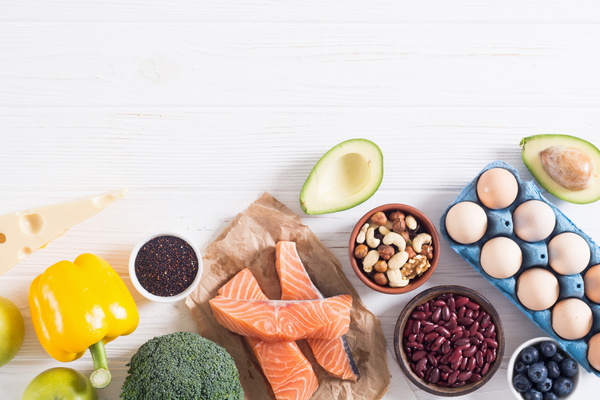While eating well should be a priority for everyone, a balanced diet can be especially important for Alphas as it may lead to notable changes in their overall quality of life.
The Big Fat Reference Guide – commonly referred to as the BFRG – notes that, “Good nutrition may help Alphas protect lung function and improve breathing by providing the energy and muscle tone needed to maintain effective respiratory effort. A poor diet can complicate Alpha-1 by imposing additional problems associated with diseases such as hypertension, coronary artery disease, diabetes and others.”
That being said, here are some helpful dietary recommendations for Alphas that are based upon the current knowledge of Alpha-1 and the principles of sound nutrition as described by experts:
- Maintain a well-balanced diet – Your caloric intake should consist of 15 percent protein (lean meats, poultry and fish), 30 percent fat (nuts, olive oil) and 55 percent carbohydrate (fruits, vegetables and whole grains)
- Consume a variety of grains daily – Strive to eat one of the following at each meal: whole wheat bread, brown rice, cornmeal, bulgur, whole wheat pasta, whole wheat crackers and whole grain cereals like oatmeal.
- Eat a variety of fruits and vegetables – Eat a serving of fresh or frozen fruits and vegetables at each meal.
- Choose a diet low in saturated fat and moderate in total fat – Limit your daily consumption of high-fat meats, butter, whole milk and cheese. Instead, replace these with lower fat options of these foods such as lean meats, low-fat milk and reduced-fat cheese.
- Choose beverages and foods to moderate your intake of sugar – To keep sugar from displacing foods with nutrients, set a daily intake limit for sugar of no more than 10 percent of the total calories. Essentially, this means that dessert foods such as ice cream, brownies and candy, as well as sugary beverages such as sodas and fruit drinks should be consumed sparingly.
- Limit overall sodium intake and prepare foods with less salt – Do not add salt during food preparation or to food served at the table. Minimize the consumption of packaged and processed foods. Rather than buying frozen entrees, which are often loaded with sodium, choose to eat fresh meats, whole grains, and fresh or frozen fruits and vegetables.
For additional information about healthy eating, please consult the Big Fat Reference Guide .
